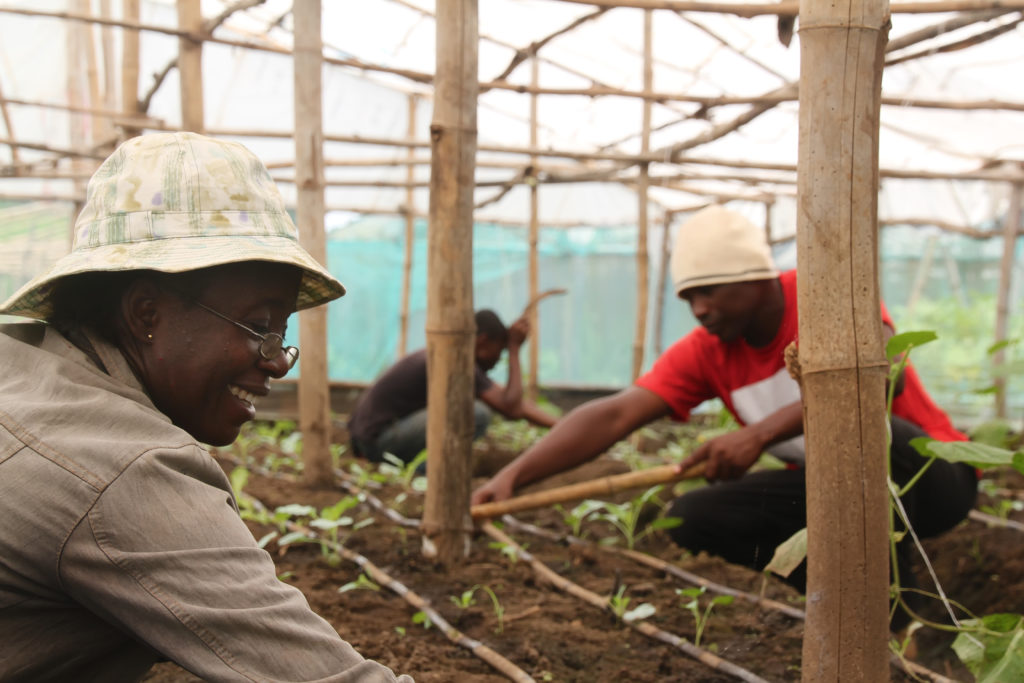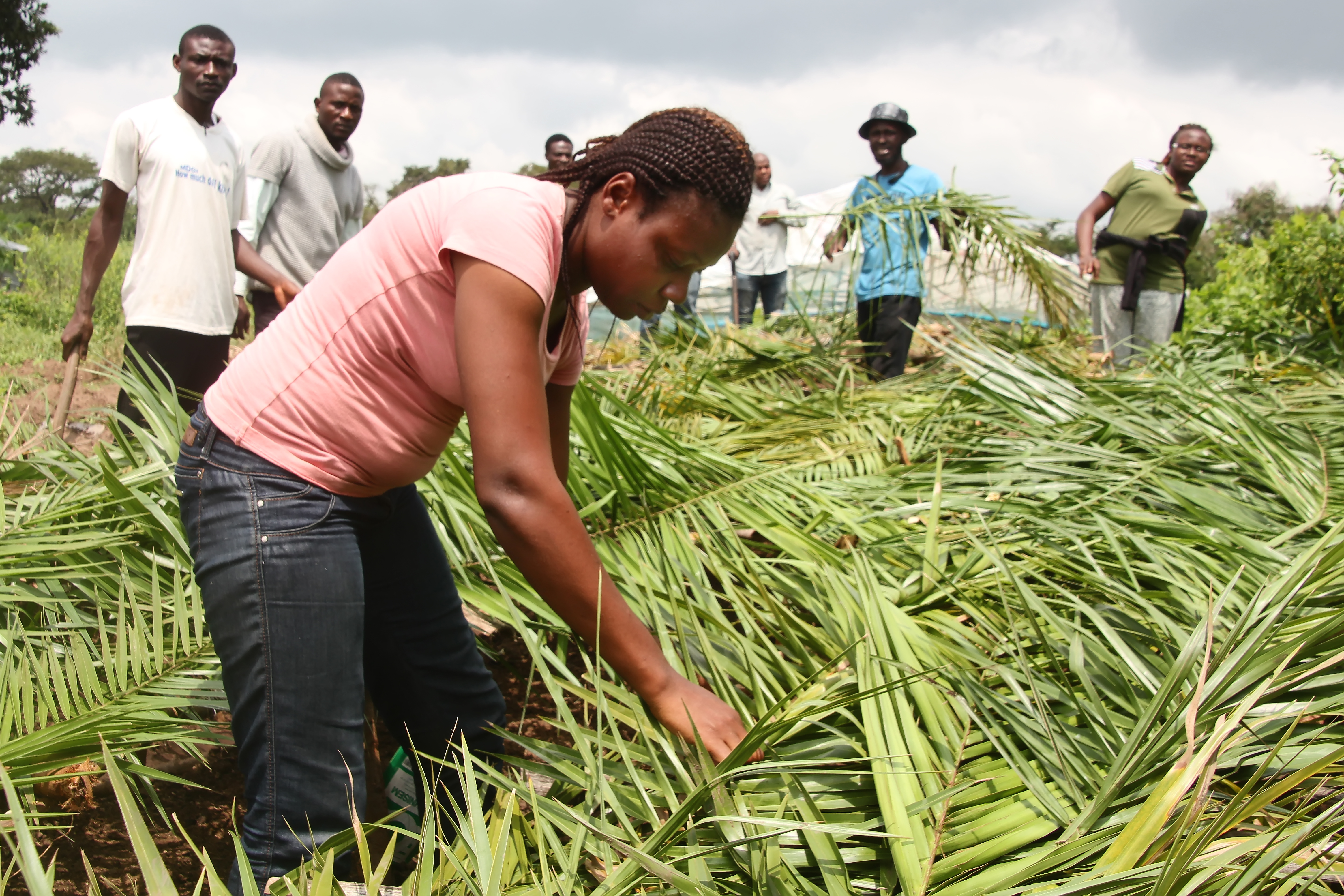
In a small greenhouse in Nigeria, young agricultural entrepreneurs from all over the country gather around an unlikely teacher to learn about vegetable production and farm management. Yinka Adesola, though trained at the master’s level in geology, is committed to solving Nigeria’s food security issues by empowering the next generation with the tools and knowledge to grow and sell more food.
Adesola realized early in her career that if Nigeria were to feed itself and meet the needs of its domestic market, farm yields would need to be boosted. And with the aging producer population, she knew that young people held the key to unlocking Nigeria’s agricultural potential.
“I found myself on the farm because, for me, I found agriculture to be fabulous. I’ve found the most important thing to combat in my country is hunger…by learning to feed ourselves, we may be able to satisfy our domestic market,” Adesola remarked.
Attending trainings sponsored by IFDC’s 2SCALE project, Adesola learned how to increase farm productivity with good agricultural practices and integrated soil fertility management. She was also taught business management strategies such as in marketing and selling crops. In addition, the project linked her with East-West Seed, a company that breeds and produces high-quality vegetable seeds for tropical conditions. According to Adesola, “[East-West Seed’s] tropicalized variety has proven to be outstanding in terms of yield and resistance to local diseases.”
When she returned from the trainings, Adesola recognized that she could not keep her new knowledge to herself if she wanted to make a difference: “I wanted to hold other trainings to attract more youth to agriculture, to show that agriculture is a lucrative business.” Thus, the Entrepreneur Youth Multipurpose Cooperative was born.

Initially, youth would come for a month-long training, which Adesola learned was not enough time to train a qualified farm manager. Now, every three months, trainees from all around Nigeria come to learn vegetable production and farm management.
Surprisingly, many of her trainees have already graduated from university. They are seeing that agriculture can often be very lucrative. In addition, Adesola admonishes youth of the necessity to “get your hands dirty,” but emphasizes that “farming is a lucrative business if you know your market, and if you can meet its requirement in volume and quality.”
For Adesola, “The future is bright for agriculture, [but] what the youth need are facilities to produce in.” In her view, training farms like her own are filling the gap for information sharing, but opportunities exist for improved financing for young agricultural entrepreneurs.
“What we are doing here is on a very small scale,” Adesola admits, but involving, training, and empowering youth “is a way out of our food crisis.”




